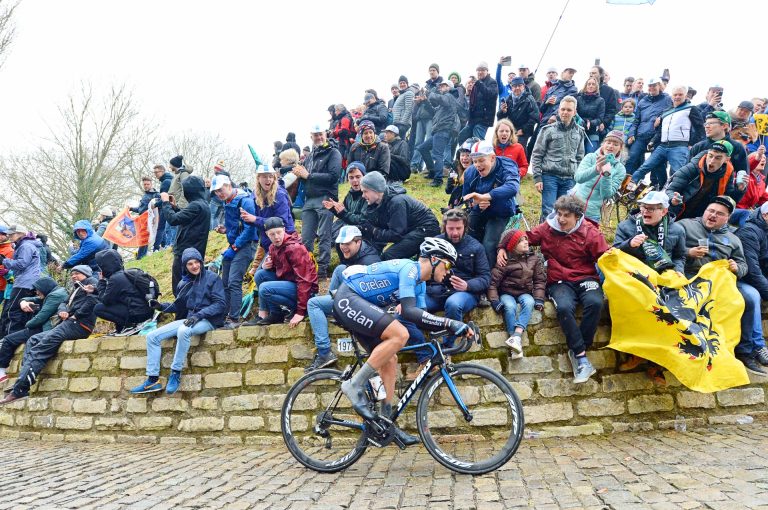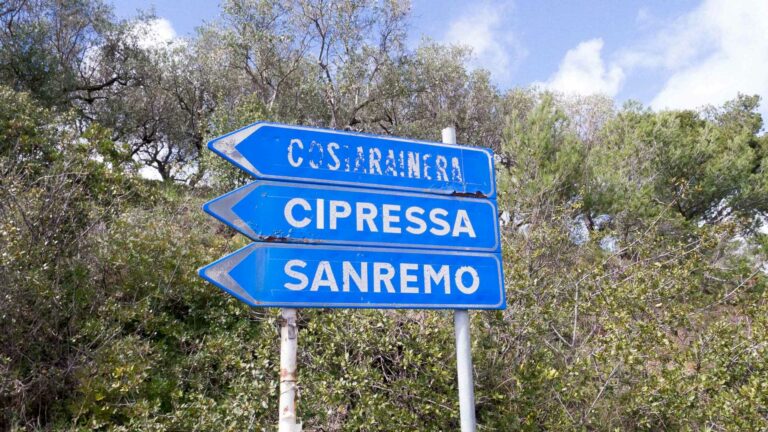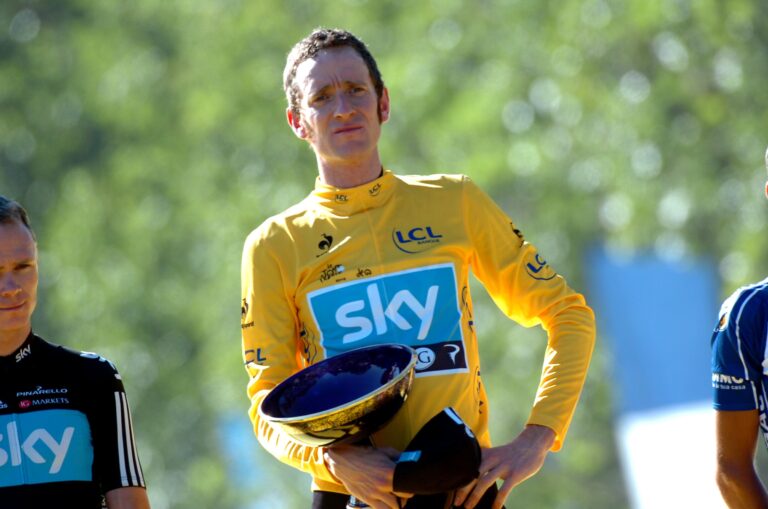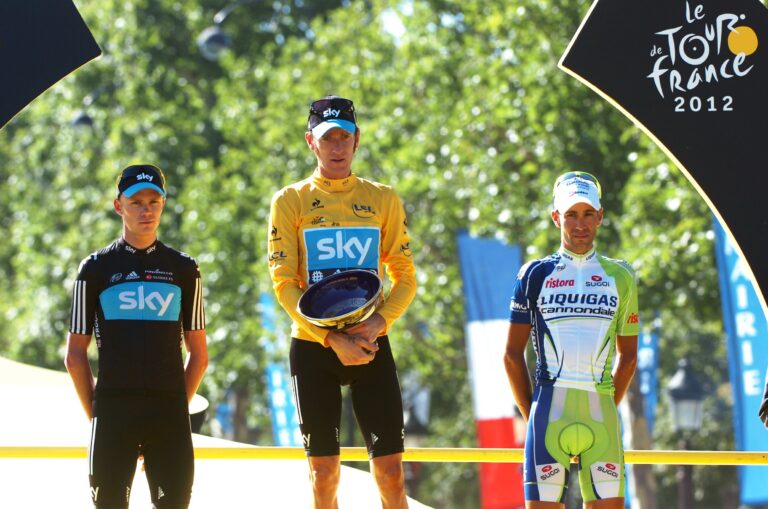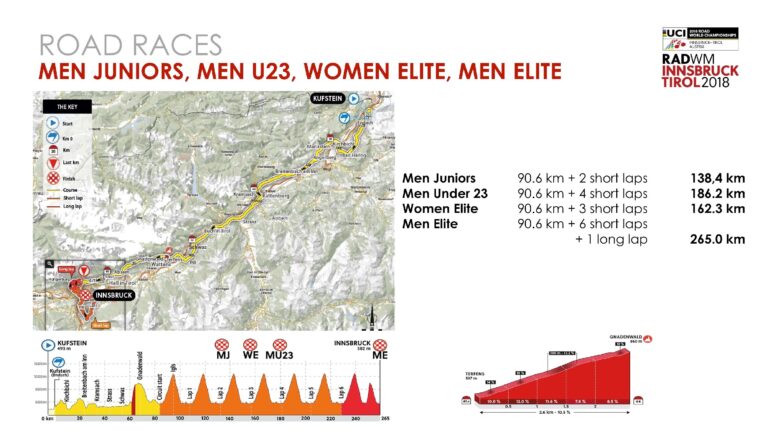Michael Barry’s illustrious career saw him ride for two of the sport’s most famous teams – US Postal and Sky.
In very contrasting eras, Barry rode for both Lance Armstrong and Sir Bradley Wiggins – very different in a lot of ways according to the Canadian, and not just the Armstrong is a self-confessed cheat and that Wiggins is a defiantly clean athlete.
Barry has written before of his experiences with the former, his book “Inside the Postal Bus” having been released in 2005.
Nearly a decade on, the Canadian has written another – “Shadows on the Road” – the title of which is pointed.
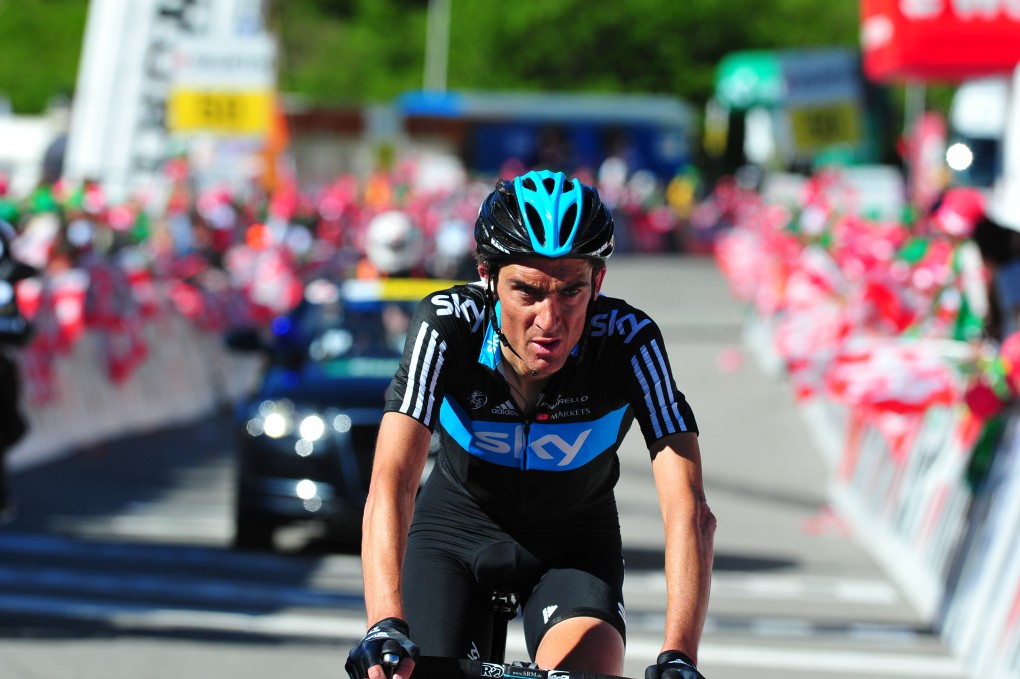
Shadows on Barry’s career, of course, include his past doping – a fact vehemently denied in his 2005 book, and something he continued to deny until toward the end of his career in 2012.
Barry’s story is, sadly, certainly nothing unusual – young rider enters cycling naïve, turns to doping to compete, leaves the sport bitter about his experiences.
Addressing doping
Indeed it is something he confirmed to RCUK, saying: “I think it was a progressive thing personally. I slowly became immersed in the culture and I had this childhood dream and was pushing towards it no matter what.
“The childhood dream became a career and the reality of the career was very different from the dream.”
Barry, unlike some of his contemporaries, was able to come back clean however – admitting it was startling reality which made him re-think his career path and future options.
I slowly became immersed in the culture and I had this childhood dream and was pushing towards it no matter what – Michael Barry
He told RCUK: “There was a moment when I decided to stop and be done with it. I was in a hospital after a bad crash in Belgium, at the Tour of Flanders, and my son had been born.
“I just thought, ‘what the heck am I doing with my life?’ At that point there was quite a shift in the peloton. There were teams popping up that weren’t going to encourage doping or turn a blind eye to it or basically, systematically dope their riders.
“There was a change in cycling at that point. That was when I decided I was either going to move on or, if I was going to keep racing, I was going to race clean.”
There are now teams, such as Team Sky, who are very vocally clean and the instances of failed doping tests in the sport appear to be diminishing.
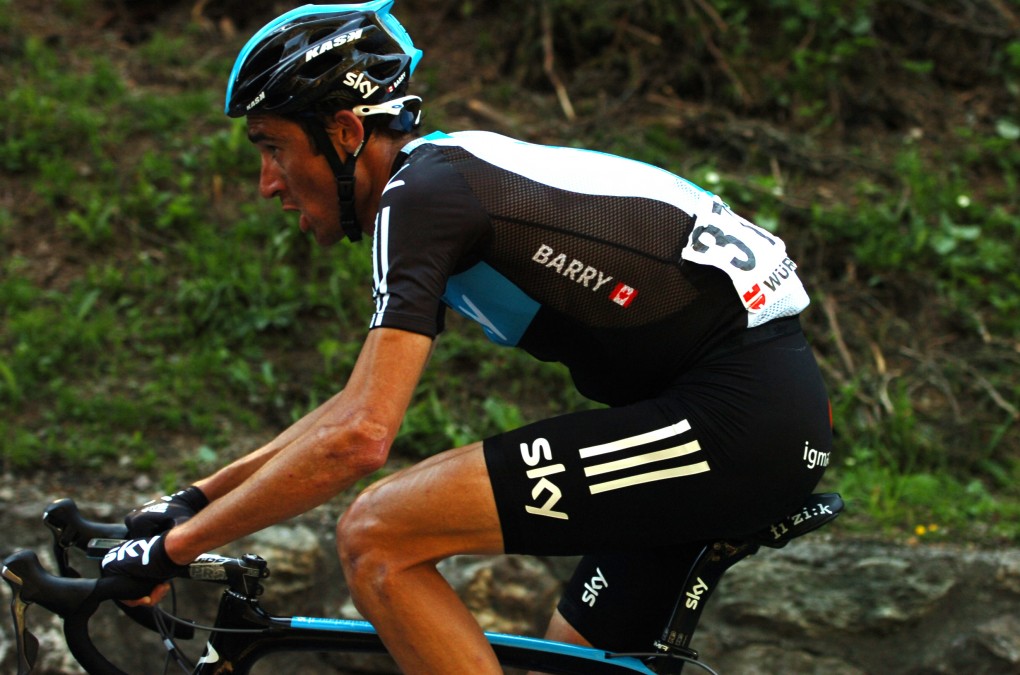
And Barry accepts huge strides have been made in repairing cycling’s tarnished reputation, but believes to push towards a completely clean sport – not just cycling, but sport as a whole – athletes’ health needs to be given greater priority.
He explained: “There are certain issues that, I think, have to be discussed in terms of cycling and sport.
“There have been huge changes in terms of cleaning up the sport but I think still we have to be aware of the athlete’s health. Far too often it’s secondary to their performance and a lot of people involved are biased so these are issues that I really think need to be addressed.
“I think most importantly, it’s just making people aware of what a cyclist experiences – or an athlete experiences. Very often we see billboards of athletes crossing finishing lines or scoring goals and in their moment of glory.
“We don’t, as fans, and the general public is not aware of how they deal with everything from injuries to the pressures of the sport.”
There have been huge changes in terms of cleaning up the sport but I think still we have to be aware of the athlete’s health. Far too often it’s secondary to their performance – Michael Barry
He added: “It’s all part of the riders’ health. With the doping, we have seen the culture was incredibly toxic on a lot of levels and then you look at the number of crashes too.
“I think there are certainly things that need to be looked at with regard to injuries. And also when you look at the demands of the races, the racing conditions and whether or not the peloton should be going to Beijing and racing in the pollution – is that good for the riders’ health? Is that something we should accept?
“These are issues that need to be looked at and the riders, the peloton, certainly needs unbiased representation as well.”
Away from the doping however, Barry also believes the change in the sport since he started his career has been vast.
Team Sky’s innovation and marginal gains approach has become renowned in the sport, though it has not always met with universal approval from their rival teams.
Riding for Team Sky
But what is it like to be part of the British team, and how does it compare to the likes of US Postal?
Barry explains: “There was a big change in the teams. Sky is very good at nurturing talent and identifying talent. Riders, when they are struggling, were not just pushed to the side. They are guided along and given time to improve.
Sky is very good at nurturing talent and identifying talent. Riders, when they are struggling, were not just pushed to the side. I never thought that was the case with US Postal. You just had to toughen up and get through it – Michael Barry
“I had a good couple of years there, and the ambience of the team was actually really good.
“I never thought that was the case with US Postal. You just had to toughen up and get through it. Overall, the way that Sky has approached the sport on every level – it’s just seeking out the best advice, whether that’s within the sport or outside the sport – has been great.
“They’ve made mistakes along the way but overall, whether it was the clothes we wore, the bikes we rode or just the environment on the buses and that we were racing in, they really wanted to maximise everything so that the riders had the best of everything. Obviously they had the budget as well
“The team does not just stick to the historic lore of cycling, but try to innovate. US Postal did that to a degree but I don’t think they reached very far beyond the sport of cycling.”
Another big difference between the teams, of course, is their leader on the road – with US Postal built solely around Lance Armstrong.
Barry added: “A big difference between US Postal and Sky was also that US Postal were built around one rider – Lance – while Sky is more about the team. There are superstars within the team, but I don’t think any of those has transcended the team.”
Wiggins vs. Armstrong
As for those leaders – with Sir Brad on one hand, and Armstrong on the other – Barry admits the differences between, on a personal level, were as vast as the ethical gap that separates a confessed cheat and an unimpeachably clean rider.
He said: “They were very different in a lot of ways. Bradley, I never got the feeling he was happy in the limelight. He’s a family man, likes his quiet time and to be alone.
“He’s very introspective whereas Lance was a very vocal team leader. He would speak up in the team meetings and had a completely different style of leadership in a lot of ways.
“You can gauge their personalities pretty well, just from how they handle the media. But they were both very driven and physically very talented.
“I certainly enjoyed a lot of the time I spent with Bradley. Sometimes he was hard to read and figure out but that’s his introspective nature.
“He tends to be elusive at times but then we definitely had some good laughs together and some really nice moments on the bike together.”
It was not just Wiggins who caught Barry’s eye while at Team Sky either, with a host of British talent having been snapped up when the team was founded in 2010.
Bradley Wiggins tends to be elusive at times but then we definitely had some good laughs together and some really nice moments on the bike together – Michael Barry
And Barry believes the success they have experienced since was of little surprise, given the way they showed themselves at training camps and for the team.
“You can certainly see that the riders were good. When you ride with them in the training camps, or in the peloton, you can feel their strength as you ride on their wheel.
“You can see the way they pedal and you can see the riders who have talent. You also see the ones you have talent but not the work ethic.
“There have been no real massive surprises with Team Sky. Pete Kennaugh, right from day one when I joined the team, you could see he was a talented bike rider. Ian Stannard, as well, was extremely strong. He was very, very committed to the Classics and excited by them.
“When you see that drive and strength in someone there’s a good chance they’re going to be good unless they really get injured or go off the rails.
“Overall, there are no surprises. Even Froomey. He didn’t really know how to ride his bike that well, and didn’t have any real guidance or confidence but Sky were able to give him that where a lot of teams would have written him off.”
Having called quits on his career, however, there has been no looking back from Barry despite the cloud under which his career came to an end.
With his retirement from the sport planned, the ban handed down to him in 2012 was more of a token gesture by the UCI.
And Barry, who now works at his dad’s bike shop and is nurturing his talent as a frame builder, does not regret calling time on his life in the professional peloton.
“I don’t have any regrets about retiring,” he concluded. “I was certainly ready to do it. I just realised it was really becoming too hard on my family and on me.
“The crashes in 2012 accentuated that. They reinforced my decision to retire. I felt good about it and haven’t looked back and wished I could be in the peloton.”
“Shadows on the Road: Life at the Heart of the Peloton, from US Postal to Team Sky”, by Michael Barry, is published by Faber & Faber and is out now in hardback.

